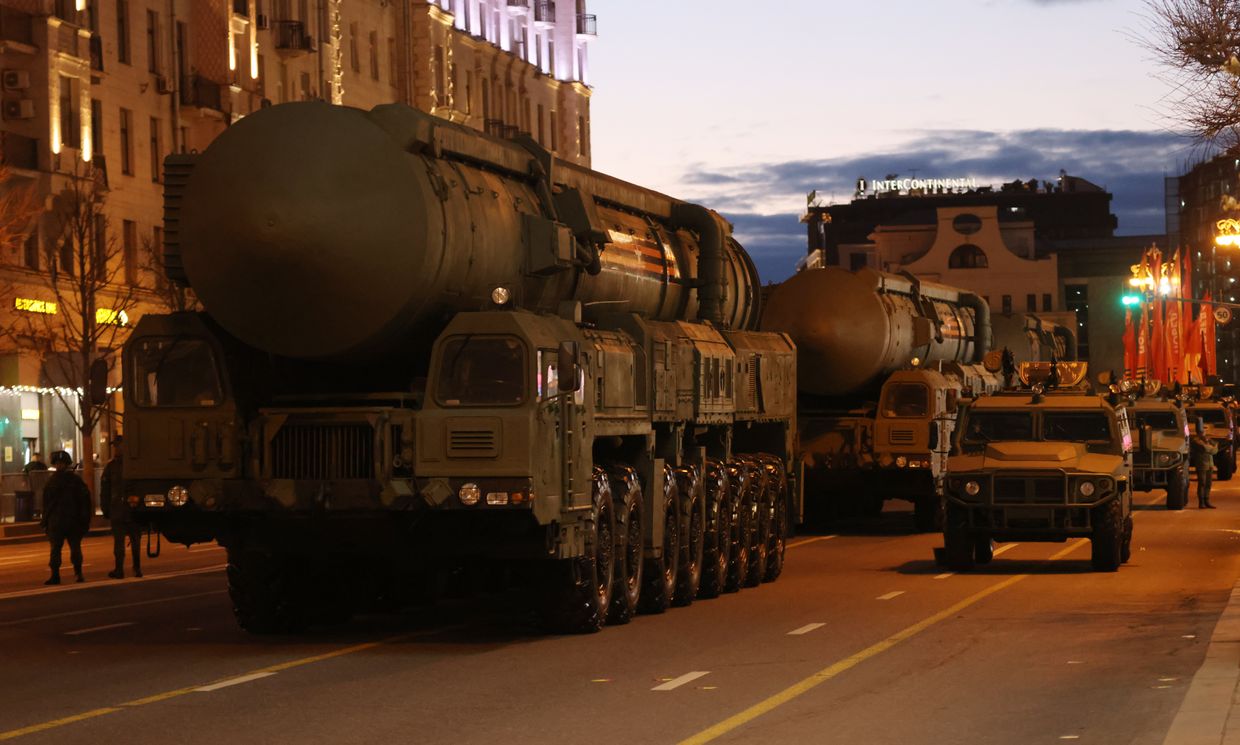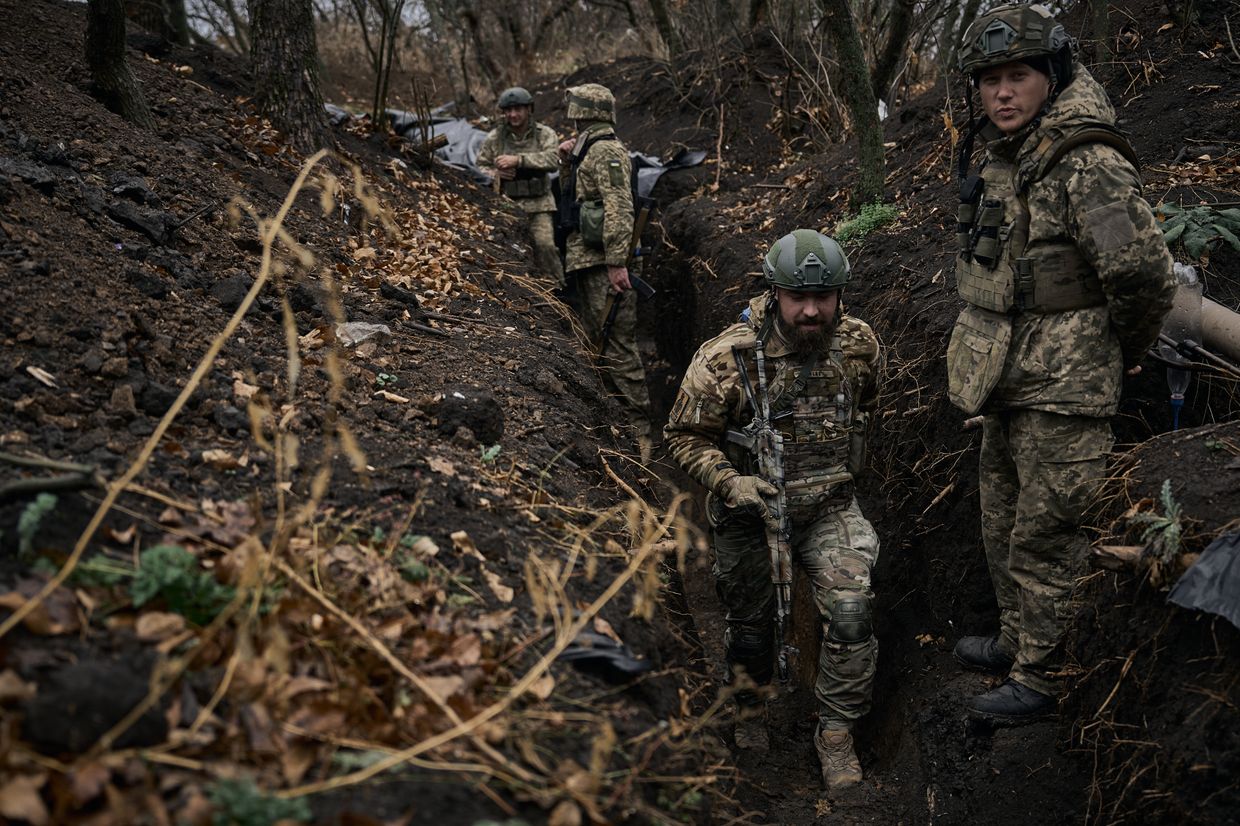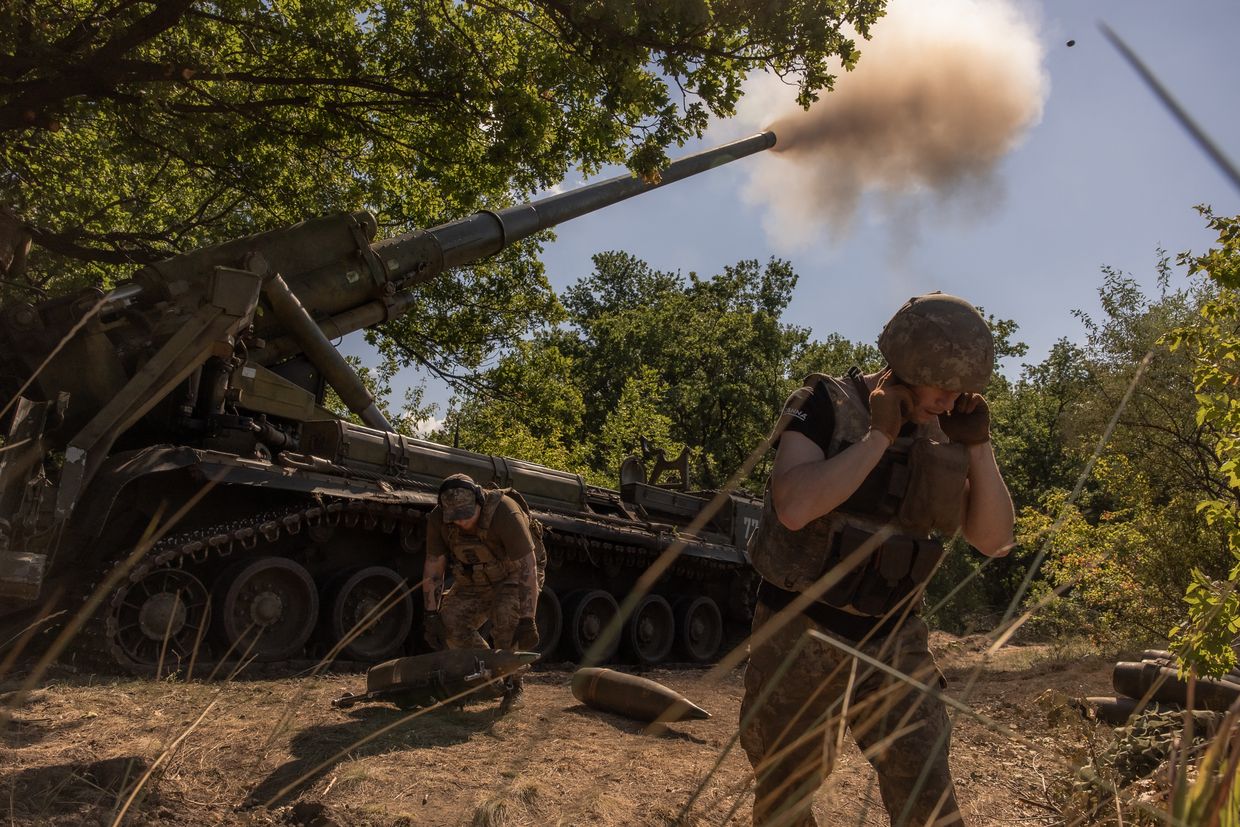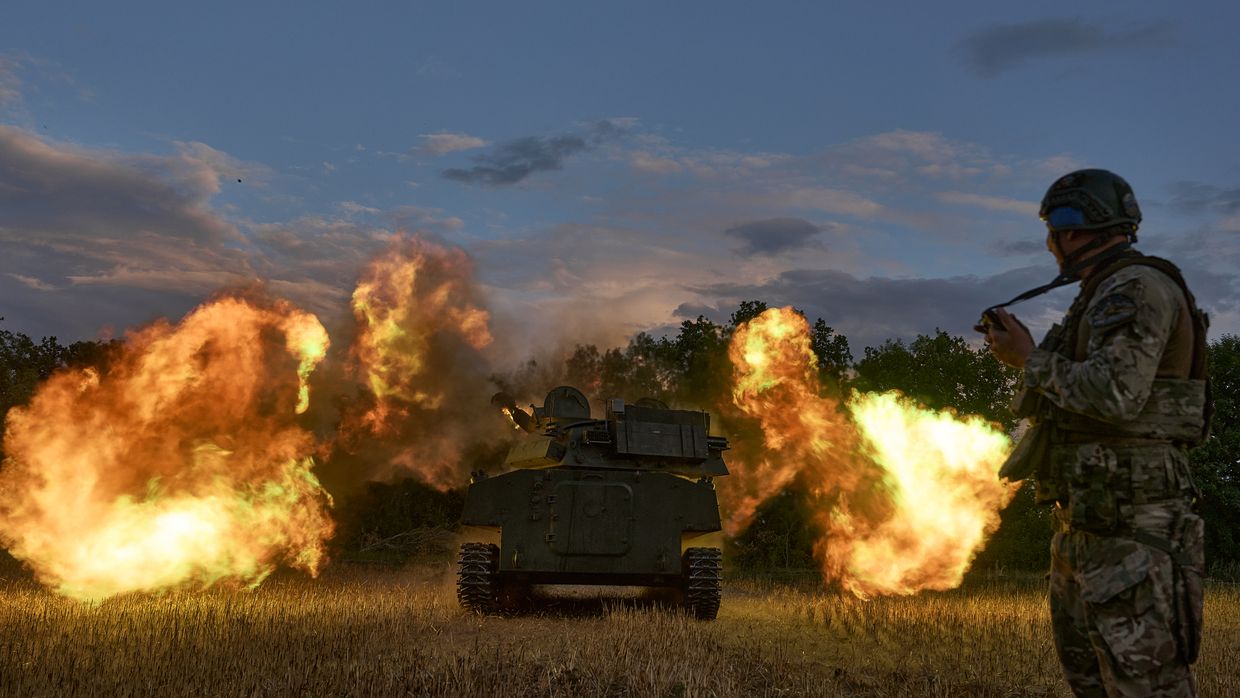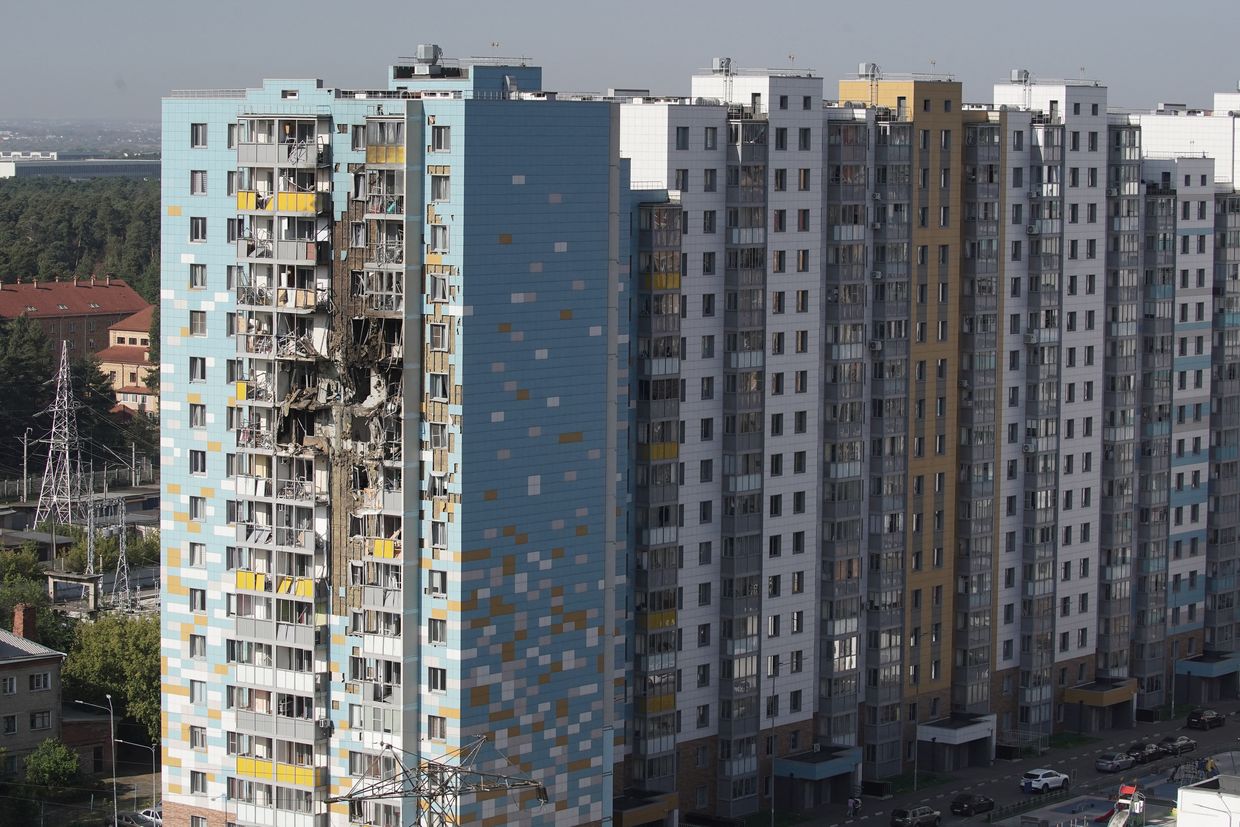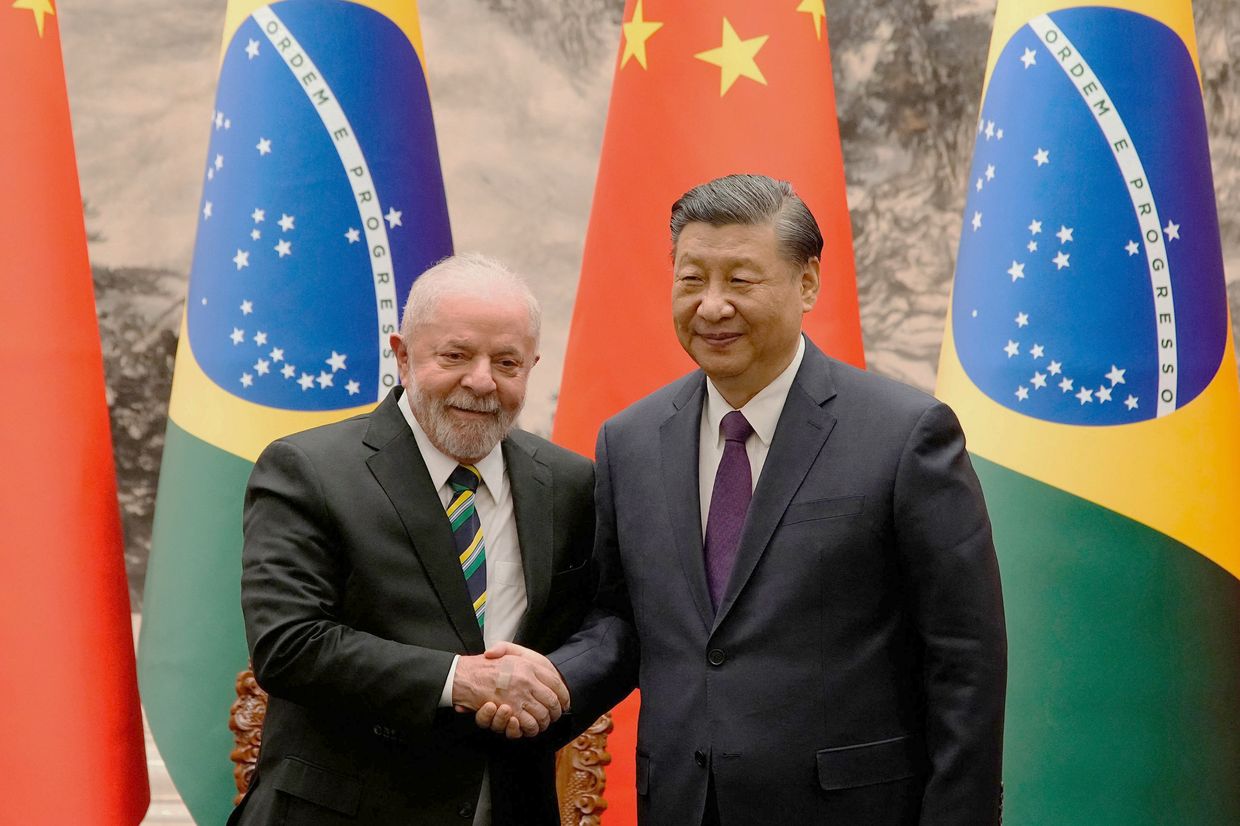Ukraine war latest: Russia preparing to attack 3 nuclear power plants in Ukraine, Zelensky says

Key developments on Sept. 25:
- Russia preparing to attack 3 nuclear plants in Ukraine, Zelensky tells UN
- No Russian troops on Vuhledar outskirts, governor claims
- Around 20 Russian soldiers captured during operation to recapture Vovchansk aggregate plant, military intelligence claims
- Ukraine has 'extensive' 3-year plan for drone, ground robotics production, defense minister says
- Russia establishes secret attack drone program in China, Reuters reports
Russia is preparing to target three Ukrainian nuclear power plants, President Volodymyr Zelensky told the U.N. Security Council in New York on Sept. 24.
"If Russia is ready to go that far, it means nothing you value matters to Moscow. This kind of Russian cynicism will keep striking if it’s given any room in the world," he said.
Zelensky did not specify which stations are under threat but said Kyiv had evidence and "proof" of Russia's plans.
There are three operating nuclear power plants on the Ukrainian-held territory — Rivne and Khmelnytskyi NPPs in the country's west, and Pivdennoukrainsk NPP in the south. Russia's regular attacks put their safety in jeopardy by cutting off power to the units.
The Zaporizhzhia Nuclear Power Plant, Europe's largest nuclear power station, has been under Russian occupation since March 2022.
Throughout its occupation, the plant has been repeatedly disconnected from the Ukrainian power grid due to Russian attacks on the country's energy infrastructure.
There have been mounting warnings from Kyiv in recent days about such attacks.
Foreign Minister Andrii Sybiha said on Sept. 21 that Russia's possible targets include open distribution devices at nuclear power plants and transmission substations "which are essential for the safe functioning of the nuclear energy system."
Earlier on Sept. 24, Zelensky said that Russia is using Chinese satellites to take pictures of Ukraine's nuclear facilities for possible future attacks.
Ukraine's special services informed Kyiv's partners and the International Atomic Energy Agency (IAEA) about the threat.
No Russian troops on Vuhledar outskirts, governor claims
Russian troops have not yet reached the outskirts of the embattled town of Vuhledar in Donetsk Oblast, Governor Vadym Filashkin said on Sept. 25.
"There is no enemy on the outskirts of the town yet. Sabotage and reconnaissance groups are coming in, but our defenders are trying to knock them out. This means that the town is not yet captured," he said on national television.
"Our defenders are doing everything possible and impossible. They burned a lot of enemy equipment."
The front-line town lies about 50 kilometers (30 miles) southwest of occupied Donetsk and roughly 40 kilometers (25 miles) east of the administrative border with Zaporizhzhia Oblast.
The 72nd Mechanized Brigade has defended Vuhledar for nearly two years, as Russian forces have been trying to capture the town since the start of the full-scale invasion in 2022.
Filashkin said Russian forces are trying to break through Ukraine's defense line near Vuhledar and "are advancing."
According to the crowd-sourced monitoring website DeepState, Russian forces are aiming to encircle the town.
Around 100 people remain in Vuhledar refusing to leave, Filashkin added.
Andrii Kovalenko, head of the counter-disinformation department at Ukraine's National Security and Defense Council, said on Sept. 24 that Russia has devastated the town of Vuhledar and is attempting to advance from the flanks.
Vuhledar has withstood numerous attacks since the outbreak of the full-scale war in 2022 and has become key to Ukrainian defenses in the southern part of Donetsk Oblast.
"The loss of Vuhledar would be not only a morale blow for Ukraine since this city has resisted plenty of assaults since 2022, but also a very serious development that can potentially threaten the security of the entire southwestern portion of Donetsk Oblast not yet occupied, along with the threat to Pokrovsk's southern flank," Federico Borsari, a fellow at the Center for European Policy Analysis (CEPA), told the Kyiv Independent earlier this month.
Around 20 Russian soldiers captured during operation to recapture Vovchansk aggregate plant, military intelligence claims
Ukrainian forces captured around 20 Russian soldiers and killed "several dozen" others during an operation to recapture an aggregate plant in the town of Vovchansk, Kharkiv Oblast, a member of Ukraine's military intelligence (HUR) claimed on Sept. 25.
Speaking to national television, a HUR special forces officer with the call sign Viking revealed details of the operation, adding that a further four Russian soldiers "tried to leave the plant and were neutralized outside the perimeter."
"The battle lasted a little over a week. There was intense shelling from the enemy. The enemy at the factory put up a lot of resistance, but in the end, we completed the task," he said.
Russian troops had been in control of the Vovchansk plant for several months before the facility was recaptured on Sept. 24., HUR previously reported.
"The plant is destroyed and damaged. But it is possible to maintain a defense there," Viking said.
The Kyiv Independent could not verify these claims.
HUR Chief Kyrylo Budanov was briefed on the "successful completion of the operation," HUR said in a statement on Sept. 24, adding the "extremely difficult" attack was carried out by the agency's special forces.
"The fighters of HUR carried out a systematic sweep of the plant's buildings, constantly engaging in contact battles with the enemy in densely built-up conditions. In some cases, Ukrainian special forces engaged in hand-to-hand combat with the enemy," it claimed.
"Ukraine's Armed Forces took the territory of the aggregate plant under control after all 30 buildings were cleared (of Russian forces)."
Vovchansk is an embattled town some 60 kilometers (37 miles) northeast of Kharkiv that has seen heavy battles since Russia launched a new offensive in the area in May.
While initially gaining ground, the Russian offensive in northern Kharkiv Oblast has quickly bogged down, with Russian troops reportedly suffering heavy losses.
The intensity of fighting has decreased somewhat compared to other sectors in Ukraine's east near Pokrovsk, Vuhledar, and Toretsk.
Ukraine has 'extensive' 3-year plan for drone, ground robotics production, defense minister says
Ukraine has developed a three-year plan for the production of drones, electronic warfare equipment, and ground robotic systems, Defense Minister Rustem Umerov said in an interview with Lb.ua media outlet published on Sept. 24.
Described as "very thorough and extensive," the document on Ukrainian manufacturing was presented during Umerov's recent trips to the U.S., the U.K., France, Germany, as well as at the Ramstein meeting earlier this month.
"We looked at how many of them (drones, electronic warfare, ground robotic systems) we needed and how we would use them at the strategic, operational, and tactical levels," the minister said.
The plan also includes the specific number of weapons that Ukraine can produce and the funds needed, Umerov added without elaborating.
"There are already several countries today that have agreed to finance our drones and missiles," Umerov added.
The Ukrainian military has proven to be a pioneer in drone technology, using innovative ways to undermine Russia's ammunition and personnel advantage.
According to Umerov, Ukraine has destroyed or damaged over 200 military facilities in Russia over the past year using "drone swarm" technology.
Kyiv says it uses domestically-produced drones to hit targets on Russian soil amid ongoing pressure on its partners to lift restrictions on deep strikes with Western-supplied weapons.
Kyiv has the production capacity to produce more than 3 million drones a year but requires financing from foreign partners, Deputy Strategic Industries Minister Hanna Hvozdiar said in July.
Russia establishes secret attack drone program in China, Reuters reports
Russia has secretly established a development and production program in China for attack drones to be used in the war in Ukraine, Reuters reported on Sept. 25 citing European intelligence sources and documents reviewed by the outlet.
According to the report, Russia has flight-tested a new drone called the Garpiya-3 (G3) in China with the help of local specialists.
Details of the project were revealed in a report by the company behind the project, IEMZ Kupol, a subsidiary of the Kremlin-owned weapons company Almaz-Antey.
China has positioned itself as neutral in the Russia-Ukraine war but has simultaneously deepened economic ties with Moscow and backed the country against Western sanctions.
Beijing has also emerged as one of Russia's leading sources of dual-use goods that feed the Russian defense industry.
In a comment to Reuters, China's foreign ministry denied knowledge of the G3 project.
In an interview with ABC News aired on Sept. 24., President Volodymyr Zelensky said Russia is using Chinese satellites to take pictures of Ukraine's nuclear facilities for possible future attacks.
"The recent information is that Russia has been using Chinese satellites and taking photos of the details of the objects on nuclear facilities," the president said.
"And in our experience, if Russia takes photos of certain objects, then there is a threat of strikes against the nuclear objects."
He did not elaborate on whether Chinese satellites were commercial or controlled by the Chinese government.



